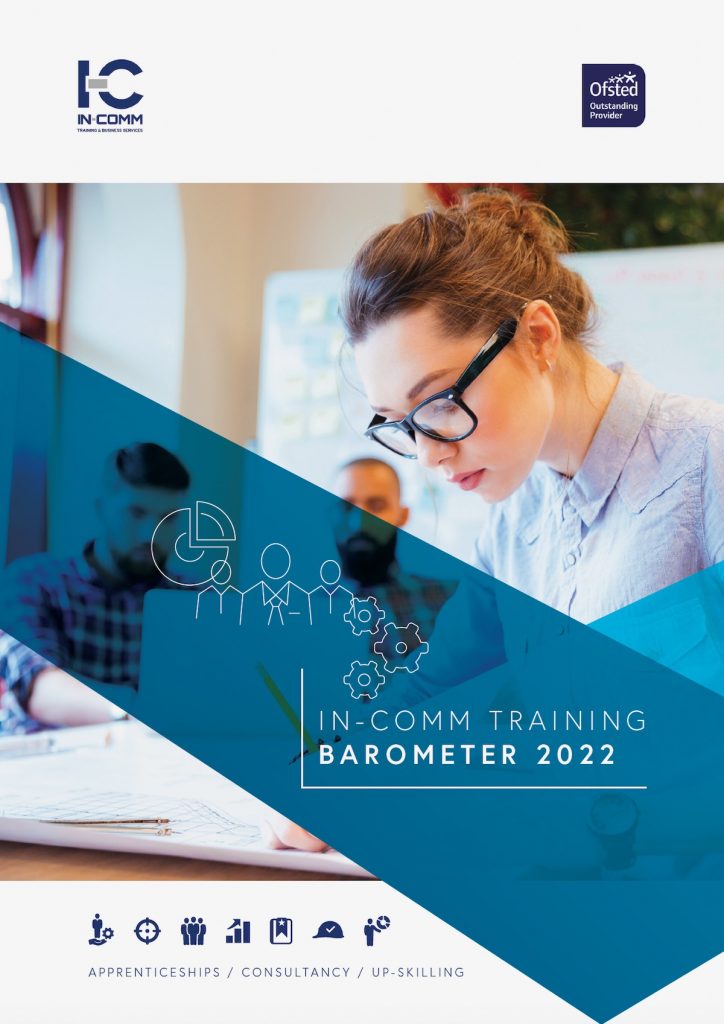Investment in engineering and manufacturing apprenticeships has remained resilient through the pandemic despite forcing nearly a third of companies to cut back on their training spend, according to a new report.

In-Comm Training’s third annual Training Barometer reveals that 67% of companies took on apprentices during the last twelve months, while an overwhelming 97% kept all their learners on despite the pressures of Covid-19.
The findings were gathered from 105 companies in the aerospace, automotive, distribution, general engineering and professional services sectors.
The report also indicates that industry confidence extends into the future, with 70% of businesses committing to taking on an apprentice over the next year, up from 47% in 2021.
Meanwhile continuous improvement, leadership and management and health and safety are viewed as the main areas where engineering and manufacturing firms are looking to train individuals, and over two thirds of companies are now offering employees the opportunity to progress learning all the way to an HNC or Degree.
“These results show a massive shift change from last year with companies reaffirming their commitment to investing in vocational learning, underlining the major strides apprenticeships have made over the last few years and the value management teams place in them,” said In-Comm Training managing director Gareth Jones.
“Despite all of the pressures, the turmoil and the restrictions, bosses believed it was vital to retain existing learners and, importantly, continue to invest in new ones as they didn’t want to be hit with a skills gap when the recovery started.”
He continued: “This is none more pertinent than in engineering, where there is a lack of talent and the people that are out there are demanding extortionate wages. Growing your own is the only sustainable way of getting around this situation and those that held their nerve during the pandemic have come out of it better.”
However the report also highlights several key barriers to training. Chief among these is difficulty releasing staff from core activities – which was cited by almost half of respondents – as many of them were focused on continuous improvement activities during the downturn in order to improve processes / quality, implement automation and reduce waste. The second biggest barrier reported by companies was identifying the right course to meet business needs.
In addition, inflation and the growing cost of doing business was cited by 59% of respondents as a significant barrier to attracting and retaining staff. A further major concern among employers is a ‘skills drain’ that comes from older workers retiring. Here 70% of businesses are worried about the impact on staff and their ability to meet the requirements of their customers.
Mr Jones commented: “While the overwhelming feeling is one of optimism, you can’t escape the very real economic and societal challenges that are having an impact on decisions around training and vocational learning.
“The biggest takeaway from this report is how firms are seeing apprenticeships in more than their traditional guise and using them to develop engineering, leadership and management, continuous improvement and health and safety professionals. I’d like to think we could build on this as a way of increasing multi-skilling throughout organisations, retraining people in new technologies and halting the skills drain.”

